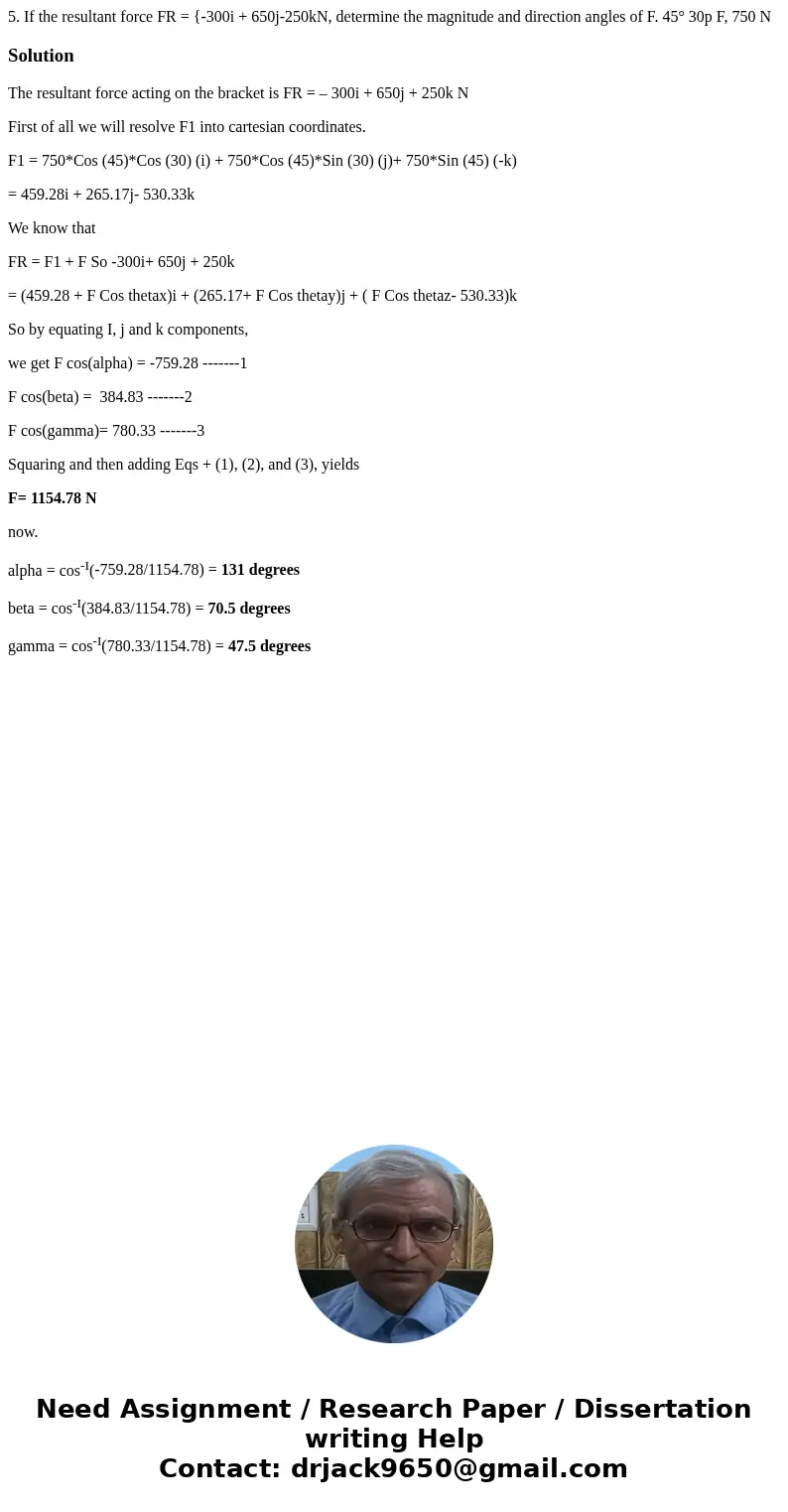5 If the resultant force FR 300i 650j250kN determine the m
5. If the resultant force FR = {-300i + 650j-250kN, determine the magnitude and direction angles of F. 45° 30p F, 750 N 
Solution
The resultant force acting on the bracket is FR = – 300i + 650j + 250k N
First of all we will resolve F1 into cartesian coordinates.
F1 = 750*Cos (45)*Cos (30) (i) + 750*Cos (45)*Sin (30) (j)+ 750*Sin (45) (-k)
= 459.28i + 265.17j- 530.33k
We know that
FR = F1 + F So -300i+ 650j + 250k
= (459.28 + F Cos thetax)i + (265.17+ F Cos thetay)j + ( F Cos thetaz- 530.33)k
So by equating I, j and k components,
we get F cos(alpha) = -759.28 -------1
F cos(beta) = 384.83 -------2
F cos(gamma)= 780.33 -------3
Squaring and then adding Eqs + (1), (2), and (3), yields
F= 1154.78 N
now.
alpha = cos-I(-759.28/1154.78) = 131 degrees
beta = cos-I(384.83/1154.78) = 70.5 degrees
gamma = cos-I(780.33/1154.78) = 47.5 degrees

 Homework Sourse
Homework Sourse